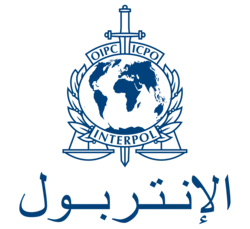The first combined INTERPOL- World Health Organization (WHO) operations targeting counterfeit pharmaceutical products took place between 29 September and 5 October 2008 in Tanzania and Uganda. The operations formed part of the WHO’s International Medical Products Anti-Counterfeiting Taskforce (IMPACT).
Counterfeit medical products – the problem
Counterfeit medical products pose a major risk to public health and are becoming increasingly prevalent in all parts of the world, particularly in Africa.
High costs of legitimate drugs and inadequate controls mean that patients turn increasingly (knowingly or otherwise) to counterfeit drugs. At best, these substandard drugs are likely to be less effective, but they can also be harmful, even life-threatening. It is estimated that in Sub-Saharan Africa over one million people, the majority of whom are children under the age of five, die from malaria. Fake antimalarial drugs are believed to be a contributory factor in a significant number of these tragedies.
Simultaneous operations
Operation Mamba demonstrates the way in which multiple law enforcement agencies can be mobilized to achieve a common goal. Police, drugs and revenue authorities joined their respective forces in Uganda and Tanzania, with the aim of inspecting and confiscating counterfeit medicines.
In order to ensure the efficiency and effectiveness of the operations, INTERPOL and IMPACT delivered a two-day training course in each country in advance of the operation, to brief personnel on methods and procedures. An investigative guide manual and aide-mémoire, produced by the Permanent Forum on International Pharmaceutical Crime, were also distributed.
Results and actions
In Tanzania 191 locations, including pharmacies, warehouses and illicit markets, were inspected resulting in the seizure of some 100 types of products. Among the confiscated drugs were anti-malarial, cardiac, anti-fungal, multivitamin, hormonal and skin medicines. Police closed four pharmacies and 18 drug shops (known as Duka la Dawa Baridis) found to be in breach of the law. A total of 44 police cases were opened.
Following raids on 45 establishments in Uganda, a total of 38 shops and pharmacies are being investigated for operating illegal businesses without the necessary licenses and controls. Unregistered medicines were confiscated and suspected counterfeit medicines were taken away for analysis.
Support from the World Health Organization
These are the first INTERPOL-led enforcement operations to take place in Africa within the framework of the WHO International Medical Products Anti-Counterfeiting Taskforce (IMPACT).
IMPACT is a global coalition of stakeholders, created in 2006, that aims to develop international collaboration between WHO member states, international organizations, NGOs, law enforcement agencies and health professional groups. The aim is to raise awareness of the dangers of counterfeit medical products and to curb their manufacture and distribution.
INTERPOL’s ongoing activities through OASIS-Africa
The catalyst for launching these significant enforcement operations is the INTERPOL OASIS-Africa programme, whose goals are to build capacity, develop infrastructure and support police operations in Africa. Operation Mamba is the first in a series of activities addressing transnational organized criminal attacks on intellectual property rights within the OASIS programme. These successes provide a firm platform to launch further operations in the future.
Similar investigations and checks on suspected products are ongoing and a public report will be available shortly.



